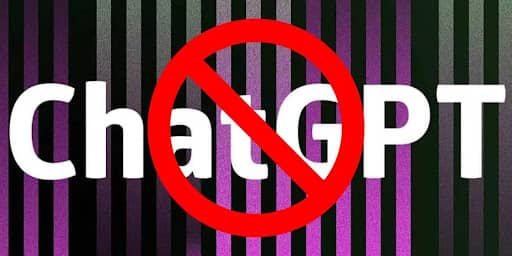
Samsung’s corporate management recently decided to prohibit the use of ChatGPT within the organization. According to reports, Samsung is concerned about the possible risks this tool poses to critical company data.
They want to ensure that their employees appreciate the gravity of the issue and have warned them not to use it for commercial purposes. This is where they’re putting their foot down.
“We ask that you diligently adhere to our security guidelines and failure to do so may result in a breach or compromise of company information resulting in disciplinary action up to and including termination of employment,” Samsung spokesman and representative said during an internal memo advising the whole company about this.
Furthermore, the memo stated that Samsung is in the process of evaluating its security protocols to “create a secure environment” for employees to use AI but at present it’s “temporarily restricting the use of generative AI.”

It’s worth mentioning that Samsung’s ban on ChatGPT isn’t the first time a tech giant has taken such action.
Due to security concerns, the US military banned the use of fitness trackers and other location-tracking gadgets in 2018.
They discovered that these devices might potentially reveal the location of troops and military bases, putting them in danger. When it comes to protecting sensitive information, it’s a serious problem.
Leading Wall Street banks such as Citigroup, Goldman Sachs, and JPMorgan were among the early adopters of restricting employee access to the tool due to concerns over third-party software potentially accessing sensitive information.
Additionally, these banks expressed concerns that the chatbot could disclose financial data, which might result in regulatory consequences.
According to Eugene Kim’s, a well-known reporter, in January, Amazon, a prominent tech giant, also cautioned its employees against utilizing it due to instances where the chatbot’s responses resembled internal Amazon data.
In response to data management concerns, OpenAI, the company responsible for ChatGPT, implemented new measures in April.
These measures included providing users with the option to disable chat history, however, despite constant pressure from news sources, they have chosen to remain tight-lipped and have refrained from making any comments regarding the ban.
As of now, the company has not addressed the issue or provided any official statement. Despite being urged to speak up, OpenAI has maintained its silence, leaving questions unanswered.
The decision to withhold comments has created a sense of mystery and speculation surrounding the ban, with the company’s intentions and perspectives remaining undisclosed.
Their continued avoidance of public discourse on the matter has left observers curious about the reasoning behind their silence and the potential implications it may have on the ban itself.

This approach is consistent with previous decisions made by firms such as Apple and Google. Because of similar security concerns, they have likewise prohibited the use of AI-powered assistants within their enterprises.
It appears that the tech industry is taking precautions to safeguard their important data.
In 2017, the US Department of Homeland Security (DHS) issued a directive barring federal agencies from using Kaspersky Lab’s antivirus software.
They were concerned about the company’s connections to the Russian government and the security danger it posed. They didn’t want to risk backdoor access to critical government networks.

Cybersecurity experts applauded Samsung’s decision to prohibit ChatGPT. They’ve been warning about the dangers of using foreign AI technologies for quite some time.
It’s all about preventing sensitive information breaches, which can have catastrophic implications. Similar safeguards have been used by internet commercial businesses like the online casinos in Ontario.
We’ve seen other cases where tech corporations enforced bans to protect sensitive data. For example, Google has prohibited the usage of Google Glass at movie theaters and casinos.
Drones are also prohibited during major events such as the Super Bowl. Data security and privacy have become increasingly important in the workplace.
The decision by Samsung sends a strong message about the significance of data security and privacy.
As technology advances, it is critical for businesses to be attentive and take all required precautions to secure sensitive information from unwanted access.
This restriction is a positive step forward for Samsung and other organizations that value data protection.
Furthermore, in recent years, the hazards connected with AI-powered tools have become well-recognized.
Hackers have discovered ways to exploit flaws in AI-powered chatbots, allowing them access to sensitive data. We saw this in 2020 when Twitter’s security was breached, and high-profile accounts were compromised.
The attackers employed artificial intelligence-powered chatbots to deceive employees and acquire access. It serves as a wake-up call to the industry.

This prudent decision to secure data security and privacy is part of a bigger trend in which technology businesses are taking proactive steps to protect sensitive information from unauthorized access.
Although some may consider these restrictions to be excessive, they are required in today’s quickly changing technology scene, and it was not a surprise when this information came public.
Sooner or later the advances of artificial intelligence-based tools have been gathering a lot of attention based on their usage by a lot of industries to reduce costs and to improve the uniformity of their content that is intended for public consumption.
But companies must be vigilant in safeguarding their assets, and Samsung’s ban on ChatGPT serves as a clear example of their commitment to data security.


